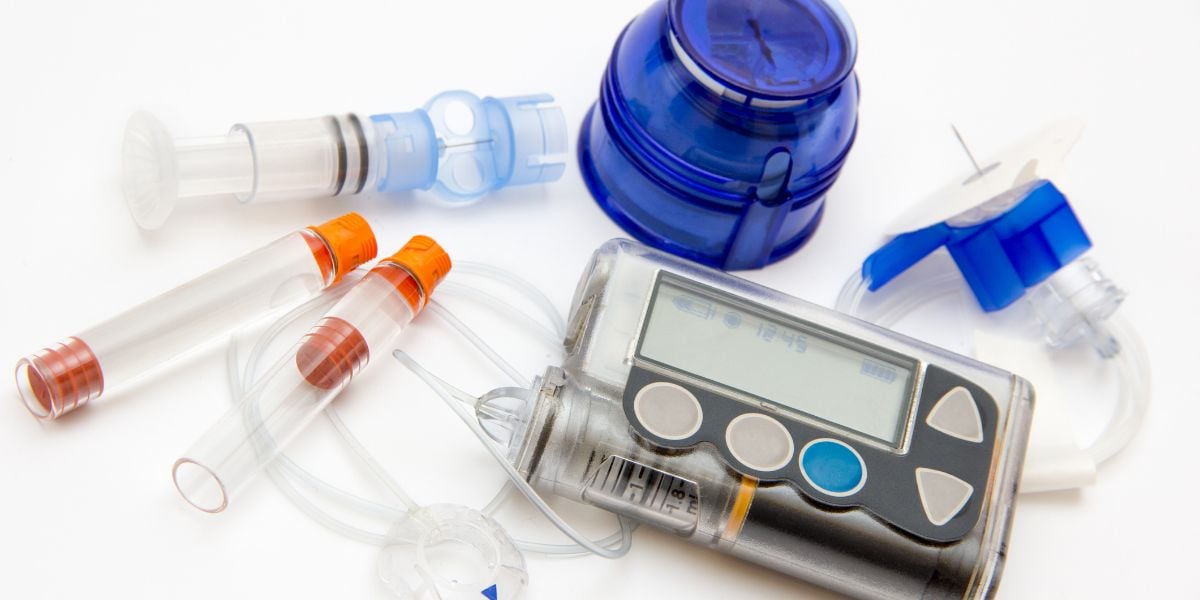Many people with diabetes are unaware about what an insulin pump is, who it is for, and how an insulin pump could help with their diabetes.
The Diabetes Forum includes an insulin pump board. Here, people with or interested in getting insulin pumps come to discuss every aspect of pumps, how to use an insulin pump, insulin pump brands and getting an insulin pump in the UK.
In the community feature this week, we look at how the diabetes community feels about insulin pumps.
What are insulin pumps?
Insulin pumps are small medical devices that contain a reservoir of insulin. The insulin pump is connected to the body and it is programmed to deliver insulin at a constant rate. This means no more injections, a major advantage for those scared of needles.
What is the advantage of an insulin pump?
The advantages of an insulin pump mean that you can adjust dose spontaneously with immediate effect. The body absorbs short-acting insulin more easily, meaning that less is wasted. Insulin absorption is small and regular, rather than a larger amount at less frequent intervals.
Are there needles involved?
The insulin pump is attached using an infusion set which doesn’t have to be a needle. Many insulin pump infusion sets use cannulas. If properly inserted, the patient cannot feel this at all. Many modern insulin pumps have automatic insertion devices. For needle-phobic diabetics that require insulin, a pump is the obvious choice.
Aren’t pumps clumsy?
For many people, such as athletes, pumps are essential. Having the pump attached may take some getting used to, but it is often possible to disconnect the infusion set briefly. This allows the insulin pumper to do exercise, take a shower or dress without worrying about the pump. Usually, people attach insulin pumps to their clothing. Insulin pumps are tough and some are even designed to be submerged.
Insulin pumps mean greater flexibility, less injections and the potential for a better quality of life amongst those who require insulin to manage their diabetes.
Which pump should I choose?
Your healthcare professional should be able to tell you more about the latest pumps and pump availability. The insulin pump market evolves quickly.
What the community are saying about insulin pumps?
- Hellyb : The pump can be hidden anywhere and then you operate it by using a remote control. You use the remote to test your BM, once your settings are done the remote will work out your insulin and any corrections that need to be made, all you have to do is put in the amount of carbohydrates in the food you are about to eat. All the information can be transferred to your computer where you can display it in many different formats and you can see where trends may be forming.
- Jonesy : We asked our GP to refer my 9 yr old son elsewhere. The referral took a while. The first 2 letters went unanswered, but we finally got through to the right person. Last week we had our first meeting with a psychologist, a dietician and a diabetic doctor. First meeting and they gave us the ok for a pump! Needless to say, we are over the moon. Gotta decide what pump now, but liking the DANA diabecare R.
- Lisaw : The needle sets can be painful to insert and sometimes also are painful when i, but they are reliable. I use Cavilon spray as I am allergic to adhesive and for some reason the needle sets hurt a lot more to insert when I have sprayed my skin which is very weird I think.
- Janrou :I’ve got my pump on my household insurance and didn’t have to pay any extra for it, however if you don’t want to put it on your household insurance I would suggest contacting several companies to see how much they will charge. Your DN will advise you the value to insure it for.
- Fergus : I have been using the pump for a month now, and still working closely with the pump specialist to get the correct basal rate. Before my pump, my BG results would always lower during the night meaning I would ensure it is around 8mmol before bed so I don’t wake up with a hypo. But since having the pump, it’s always hyper in the morning. I can go to bed with BG between 5-8 and wake up with it at 14-18.








